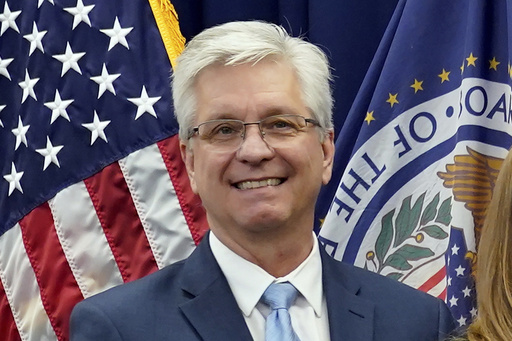WASHINGTON — A prominent official from the Federal Reserve indicated on Monday that he is inclined to endorse a reduction in interest rates during the upcoming meeting in two weeks. However, he mentioned that evidence of ongoing inflation before that time could alter his stance.
At a speech at George Washington University, Christopher Waller, a notable member of the Fed’s Board of Governors, expressed optimism that inflation is on a downward trajectory. He suggested that the central bank will likely continue its approach of lowering the key interest rate, which influences a wide range of consumer and business loans.
Despite his optimism, Waller cautioned that there remains a significant risk that inflation might stay above the Fed’s target of 2%. Such a scenario would fortify the case for maintaining the current interest rate at the upcoming meeting.
“Currently, I am leaning toward advocating for a cut to the policy rate at our December gathering,” Waller stated while addressing an audience at a conference hosted by the American Institute for Economic Research. “However, this decision will hinge on any data we receive prior to that meeting that may unexpectedly shift my inflation outlook.”
Waller’s cautious approach highlights a significant change in the economic and inflation landscape over the past month. The third quarter showed strong growth in consumer spending and the overall economy. Moreover, inflation began to accelerate in October after experiencing a decline for most of the year.
The recent electoral victory of Donald Trump has also brought forth the possibility of substantial tariffs and mass deportations, both of which could contribute to rising inflation. Some economists speculate that the Fed may choose to proceed with rate cuts at a more measured pace to better assess the repercussions of Trump’s policies.
Having seen inflation steadily decline from its peak in 2021, the Fed had previously lowered its key rate by half a percentage point in September, followed by a quarter-point cut in November. The central bank had indicated in September that it expected to implement another quarter-point reduction this month. Yet, with inflation still above the Fed’s desired level, the path forward remains uncertain.
Waller emphasized that should future economic reports indicate that inflation or growth diverges from the Fed’s anticipated trends, he might support keeping the rates steady this month.
“If the data we obtain between now and our next meeting leads to unexpected trends that contradict our forecasts of decreasing inflation and a still-strong economy, then I would be in favor of maintaining the current policy rate,” he commented.


